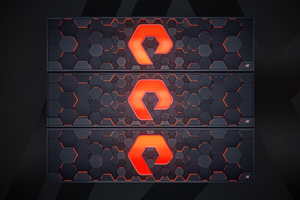Intel Exits Optane

Intel will stop making Optane storage-class memory, Intel CEO Pat Gelsinger confirmed on its earnings call today.
Optane has looked shaky for some time. Sales have been continually disappointing, and outlying parts of the Optane business have been closing down over the past couple of years. Micron, Intel's partner in manufacturing Optane, sold off its 3DXPoint fabrication facility last year and exited the business completely. Intel has also sold off its NAND flash and SSD business to SKHynix.
Optane clearly hasn't been performing to expectations, so killing it off makes sense as Gelsinger rationalises the Intel portfolio to focus minds on doing fewer things, but doing them well.
VAST Data was quick off the mark to reassure its customers, explaining that it is already multi-sourcing. VAST uses a lot of Optane in its high-performance storage, but it started using Kioxia FL6 SSDs last year. VP of products and co-founder Jeff Denworth said in his blog that nothing much would change for VAST.
There's plenty of existing Optane inventory to sell to vendors who want it, though likely at fire sale prices now. VAST should be able to make nice margins on customers who are happy to accept Optane-based systems.
Intel has claimed it will be focusing more on Compute eXpress Link (CXL) based technologies, which I see as more a reaction to market forces than Intel leading the way. Everyone has already pretty much agreed that CXL will be the standard way to connect new low-latency, high-bandwidth devices. For Intel to persist with its unique approach that tightly coupled Optane to Intel CPUs didn't make sense. Not without a market dominance on CPUs that Intel is struggling with.
Intel hinted at this in its presentation on Optane at Tech Field Day 25 back in April. CXL2.0 was slated for Granite Rapids Xeon CPUs, with CXL1.1 coming out with Sapphire Rapids Xeons. The SSDs and PMEM storage just won't be Optane.
Ultimately this is a good thing for customers. Storage class memory from the various vendors that provide it will interoperate with the broader ecosystem over CXL and that increases choice and competition. The memory pooling capabilities due in CXL 2.0 are particularly interesting.
While it's disappointing that the early promise of 3DXPoint wasn't realised, as an industry we're still getting a lot of the benefits of what 3DXPoint was trying to achieve. Storage class memory as a category still exists, there are just other ways of achieving the end result. We're still moving towards large pools of memory with persistence characteristics. Byte addressable storage is coming back, albeit slowly.
For vendors who coupled themselves too tightly to Optane, this will be bad news, but everyone else will probably be fine.
The lesson is to always have a plan B.


